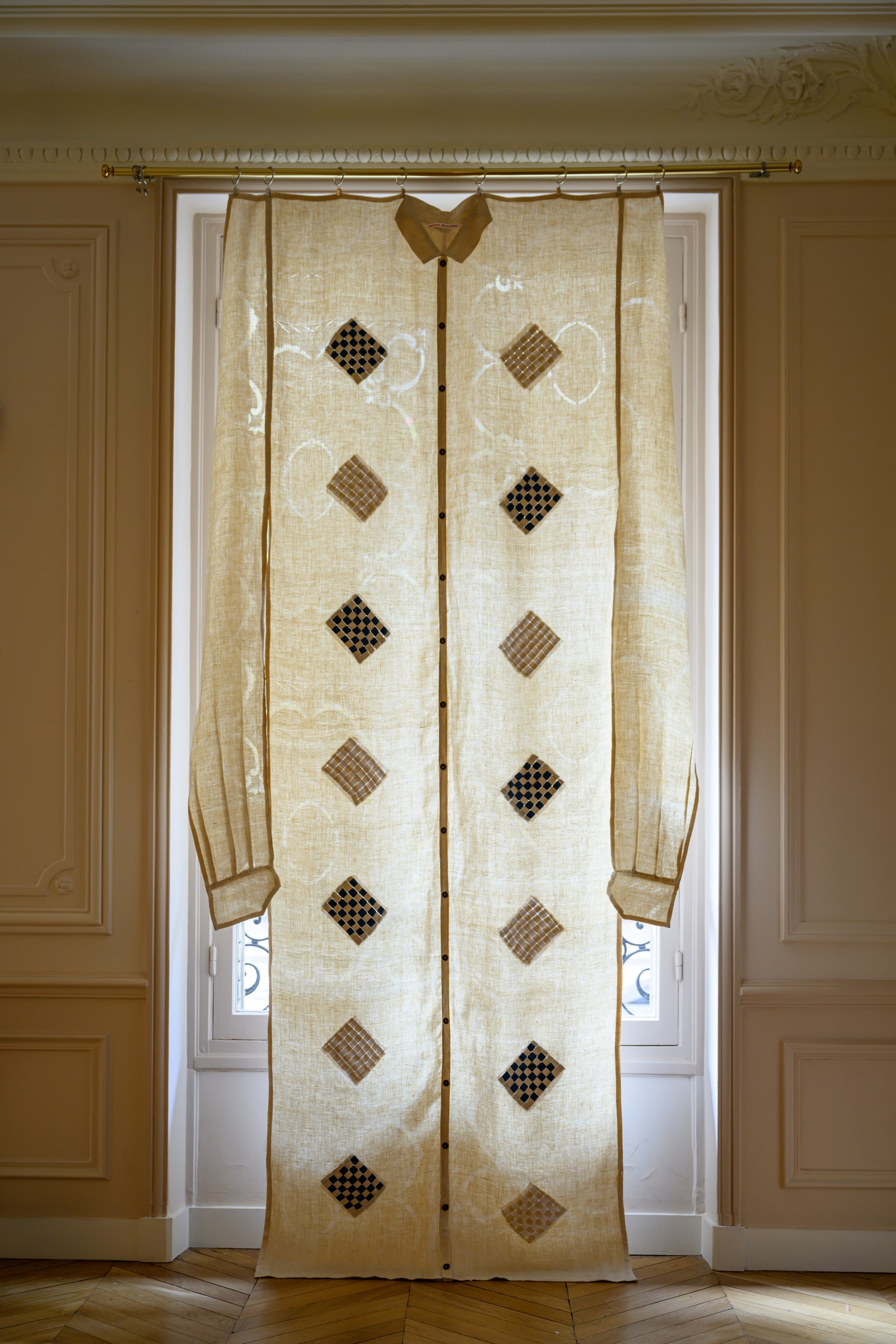When Gohar World first launched in 2020, the brand debuted with tablecloths fashioned from button-down shirts made out of Egyptian cotton and linen. (Fans can now wear a matching host shirt for $328.) More recently, Sarah Espeute, of Oeuvres Sensibles, handmade a series of shirt curtains for her exhibition “A Well-Dressed Apartment” during Paris Internationale. From my POV, all signs are pointing toward shirts as the new skirts in home decor.
Espeute can’t recall exactly where the idea for “Rideau-Chemise” came from when she first sketched it out in a notebook about five years ago, but she eventually circled back to the drawing once conversations began with Sandie Saul Roy about exploring the “art of being at home” within the walls of the PR legend’s own apartment-gallery. “I think it started from the love of the fabric and different patterns for clothes,” Espeute explains. “Taking the same shape, the same concept, the same confection, and thinking about a shirt that’s not directly a shirt. For me, it was more interesting to see the shirt be more like a curtain than just big clothes.”
Espeute uses the pieces in this exhibition as a vehicle to create a universe, inviting visitors to engage with her surreal takes on a button-down shirt, a kimono, a chemise, and Japanese noren-style trousers. Each curtain is a precious one-of-a-kind piece made exclusively from vintage fabrics sourced in France like antique damask. The French designer plans to further develop the shirt-curtain with her atelier and offer custom orders in early 2025; customers will be able to choose from various options for colors, patterns, and textiles.
Fabiana Faria and Helena Barquet can attest to the influx of button-down shirts becoming an instant crowd pleaser at their store, Coming Soon. From tablecloths to ceramics, customers can’t seem to get enough of formally dressing their tables and serving surrealism in an elegant manner. When the couple released a shirt vase by Lola Mayeras this past September, it immediately sold out despite the $280 price tag. Given that Mayeras comes from a fashion background, she views clay and fabric as one in the same. (Earlier this year, the French designer made a side table sculpture of a stack of pressed and folded shirts.) “I really love optical illusions, [so] I try to twist an idea and put it in ceramic—something that you see everywhere, but you take it, put it in your flat, and now it’s design,” Mayeras says. “I would actually love to do shirts, but real shirts in fabric with color for a real vase.”
Lee Dekel, founder of 100% Silk Shop, is struck by the beauty, humor, and absurdity of it all. “Anything you set on [the shirt tablecloth] instantly looks elevated,” she writes in an email. “Like any good design, they are aspirational. Even if you don’t own the tablecloth, you look at one and see a whole new framework for the life you want to live. It’s traditional, yet other-worldly. Completely liberated from the dictates of fashion and style—which is exactly what makes it so stylish.”

